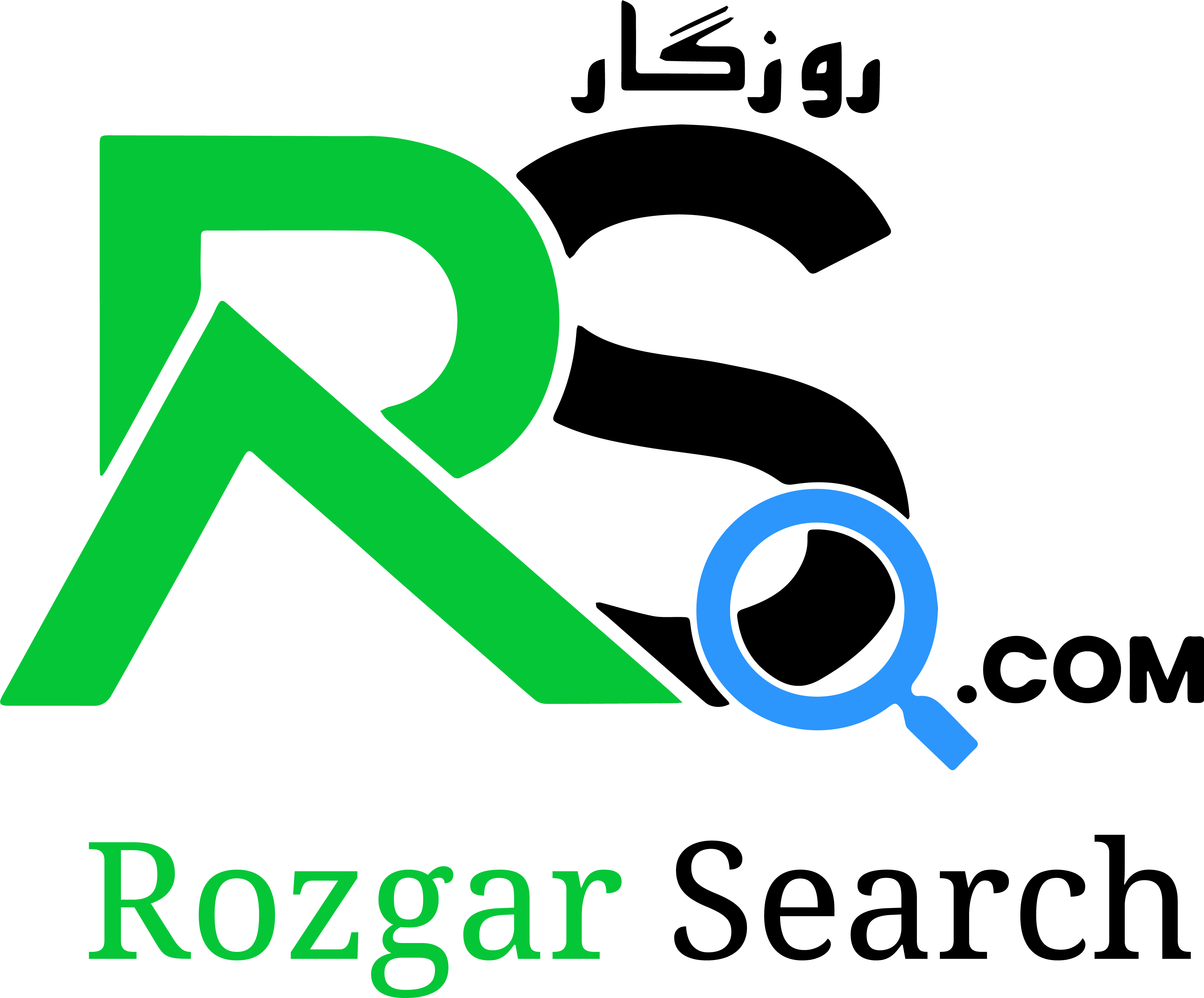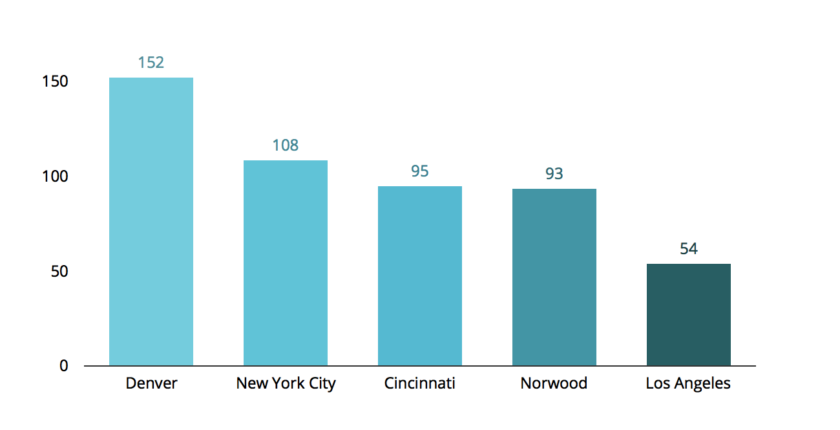Job Market Trends Post-Pandemic: What to Expect
The COVID-19 pandemic has undeniably reshaped the global job market, and as we slowly emerge from its grip, it’s crucial to stay informed about the evolving trends. If you’re a job seeker or simply curious about the state of employment, this blog will provide valuable insights into what you can expect in the post-pandemic job market. We’ll delve into the challenges and opportunities awaiting you, so you can navigate your career path effectively.
Remote Work is Here to Stay
One of the most significant changes brought about by the pandemic is the widespread acceptance of remote work. As we move forward, remote work is likely to remain a permanent fixture in the job market. Companies have realized the benefits of remote work, such as reduced overhead costs and access to a broader talent pool. This trend opens up opportunities for job seekers, allowing them to apply for positions beyond their geographical location.
Hybrid Work Models
While remote work is expected to continue, many organizations are adopting hybrid work models. This means that employees will divide their time between working from home and coming into the office. As a job seeker, you should be prepared for this shift, and when searching for jobs, consider the flexibility of work arrangements.
Upskilling and Reskilling Are Essential
The pandemic has accelerated technological advancements and automation in many industries. To remain competitive in the job market, individuals need to continuously upskill and reskill. Employers are placing a premium on adaptable candidates who can learn and implement new technologies. Websites like Rozgarsearch can be invaluable resources for finding courses and certifications to enhance your skillset.
Increased Demand for Health and Wellness Professionals
The pandemic heightened the world’s focus on health and wellness. As a result, there’s a growing demand for healthcare professionals, including nurses, doctors, mental health counselors, and wellness coaches. Job seekers in these fields will find a plethora of opportunities in the post-pandemic job market.
E-commerce and Supply Chain Opportunities
The surge in e-commerce during the pandemic is expected to continue. Consequently, there will be increased demand for jobs in supply chain management, logistics, and e-commerce operations. Job seekers with expertise in these areas will be well-positioned for success.
Flexible Benefits and Remote Perks
Employers are becoming more creative in offering benefits to attract and retain talent in a post-pandemic world. In addition to traditional benefits like healthcare and retirement plans, many companies are offering unique perks, such as home office stipends, mental health support, and flexible scheduling. These perks can significantly impact your job satisfaction, so keep an eye out for companies that prioritize employee well-being.
Green Jobs and Sustainability Careers
With increased awareness of environmental issues, the demand for green jobs and sustainability careers is on the rise. Opportunities in renewable energy, environmental consulting, and sustainable agriculture are expected to grow. If you have a passion for the environment, consider pursuing a career in these sectors.
Gig Economy Opportunities
The gig economy has been on the rise for several years, and the pandemic has accelerated its growth. Job seekers looking for flexible work arrangements or side hustles can explore opportunities in the gig economy. Platforms like Rozgarsearch can connect you with short-term and freelance jobs to supplement your income.
Emphasis on Soft Skills
In addition to technical skills, employers are placing a high value on soft skills such as communication, adaptability, and emotional intelligence. These skills are vital in remote and hybrid work settings, where effective collaboration and communication are key. Make sure to highlight your soft skills in your job applications and interviews.
Evolving Interview Processes
The traditional in-person interview may no longer be the norm. Video interviews, asynchronous interviews, and AI-driven assessments are becoming more prevalent. Job seekers should be prepared for a variety of interview formats and be comfortable with technology-driven assessments.
Mental Health and Well-being Support
Mental health support and well-being programs are no longer seen as optional benefits. Employers are increasingly offering resources to help employees cope with stress and maintain a healthy work-life balance. When searching for jobs, consider the support available for mental health and well-being.
Networking Remains Essential
Despite changes in the job market, networking remains a powerful tool for job seekers. Building and maintaining professional relationships can open doors to hidden job opportunities. Attend virtual networking events, join relevant online communities, and make use of platforms like Rozgarsearch, which may have networking features.
Global Job Market Access
The pandemic has made remote work and international collaboration more accessible. Job seekers can now explore opportunities in different parts of the world. With the right skills and flexibility, you can apply for jobs across borders, broadening your career prospects.
Adaptability is the Key
In this ever-evolving job market, adaptability is a must. Be open to change, continuously update your skills, and stay informed about industry trends. The ability to pivot and embrace new opportunities will be your strongest asset.
Conclusion
As the job market transforms in the wake of the pandemic, it’s essential to stay informed and adaptable. The trends discussed in this blog provide a roadmap for job seekers to navigate the evolving landscape. Utilize resources like Rozgarsearch to find relevant job listings, courses, and networking opportunities to boost your career. Embrace change, upskill, and remain resilient as you step into the post-pandemic job market. Your future success awaits.
Remote Work is Here to Stay
One of the most significant changes brought about by the pandemic is the widespread acceptance of remote work. As we move forward, remote work is likely to remain a permanent fixture in the job market. Companies have realized the benefits of remote work, such as reduced overhead costs and access to a broader talent pool. This trend opens up opportunities for job seekers, allowing them to apply for positions beyond their geographical location.
Hybrid Work Models
While remote work is expected to continue, many organizations are adopting hybrid work models. This means that employees will divide their time between working from home and coming into the office. As a job seeker, you should be prepared for this shift, and when searching for jobs, consider the flexibility of work arrangements.
Upskilling and Reskilling Are Essential
The pandemic has accelerated technological advancements and automation in many industries. To remain competitive in the job market, individuals need to continuously upskill and reskill. Employers are placing a premium on adaptable candidates who can learn and implement new technologies. Websites like Rozgarsearch can be invaluable resources for finding courses and certifications to enhance your skillset.
Increased Demand for Health and Wellness Professionals
The pandemic heightened the world’s focus on health and wellness. As a result, there’s a growing demand for healthcare professionals, including nurses, doctors, mental health counselors, and wellness coaches. Job seekers in these fields will find a plethora of opportunities in the post-pandemic job market.
E-commerce and Supply Chain Opportunities
The surge in e-commerce during the pandemic is expected to continue. Consequently, there will be increased demand for jobs in supply chain management, logistics, and e-commerce operations. Job seekers with expertise in these areas will be well-positioned for success.
Flexible Benefits and Remote Perks
Employers are becoming more creative in offering benefits to attract and retain talent in a post-pandemic world. In addition to traditional benefits like healthcare and retirement plans, many companies are offering unique perks, such as home office stipends, mental health support, and flexible scheduling. These perks can significantly impact your job satisfaction, so keep an eye out for companies that prioritize employee well-being.
Green Jobs and Sustainability Careers
With increased awareness of environmental issues, the demand for green jobs and sustainability careers is on the rise. Opportunities in renewable energy, environmental consulting, and sustainable agriculture are expected to grow. If you have a passion for the environment, consider pursuing a career in these sectors.
Gig Economy Opportunities
The gig economy has been on the rise for several years, and the pandemic has accelerated its growth. Job seekers looking for flexible work arrangements or side hustles can explore opportunities in the gig economy. Platforms like Rozgarsearch can connect you with short-term and freelance jobs to supplement your income.
Emphasis on Soft Skills
In addition to technical skills, employers are placing a high value on soft skills such as communication, adaptability, and emotional intelligence. These skills are vital in remote and hybrid work settings, where effective collaboration and communication are key. Make sure to highlight your soft skills in your job applications and interviews.
Evolving Interview Processes
The traditional in-person interview may no longer be the norm. Video interviews, asynchronous interviews, and AI-driven assessments are becoming more prevalent. Job seekers should be prepared for a variety of interview formats and be comfortable with technology-driven assessments.
Mental Health and Well-being Support
Mental health support and well-being programs are no longer seen as optional benefits. Employers are increasingly offering resources to help employees cope with stress and maintain a healthy work-life balance. When searching for jobs, consider the support available for mental health and well-being.
Networking Remains Essential
Despite changes in the job market, networking remains a powerful tool for job seekers. Building and maintaining professional relationships can open doors to hidden job opportunities. Attend virtual networking events, join relevant online communities, and make use of platforms like Rozgarsearch, which may have networking features.
Global Job Market Access
The pandemic has made remote work and international collaboration more accessible. Job seekers can now explore opportunities in different parts of the world. With the right skills and flexibility, you can apply for jobs across borders, broadening your career prospects.
Adaptability is the Key
In this ever-evolving job market, adaptability is a must. Be open to change, continuously update your skills, and stay informed about industry trends. The ability to pivot and embrace new opportunities will be your strongest asset.
Conclusion
As the job market transforms in the wake of the pandemic, it’s essential to stay informed and adaptable. The trends discussed in this blog provide a roadmap for job seekers to navigate the evolving landscape. Utilize resources like Rozgarsearch to find relevant job listings, courses, and networking opportunities to boost your career. Embrace change, upskill, and remain resilient as you step into the post-pandemic job market. Your future success awaits.


